
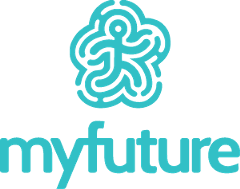
The myfuture website provides a diverse range of Australian resources for schools to support students to explore career pathways and tools to develop self-knowledge to help with career decision-making. myfuture has a range of recorded webinars for Career Practitioners, more than 300 occupation videos and many links to practical teaching resources for career educators, VET Coordinators, PLP teachers and Workplace Practices teachers.
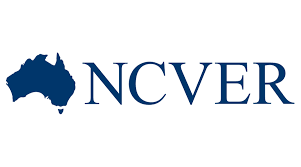
The National Centre for Vocational Education Research (NCVER) provides current information and statistics about the Australian VET sector. It is the national professional body responsible for collecting, managing, analysing and communicating VET research and statistics.
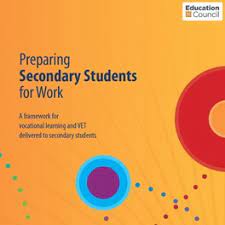
The tool was developed in 2017 around the Key elements for enhanced career education for students identified in the Preparing Secondary Students for Work framework. The tool assists schools to reflect on their career education programs and identify areas of good practice and areas where there is room for improvement.
The tool can be used by a range of users including the school leadership team, Principals, teachers, career advisers and career education teachers. Schools who are able to demonstrate a high level of achievement in each of the six key elements will be providing a career education program that meets international best practise and is of high quality.
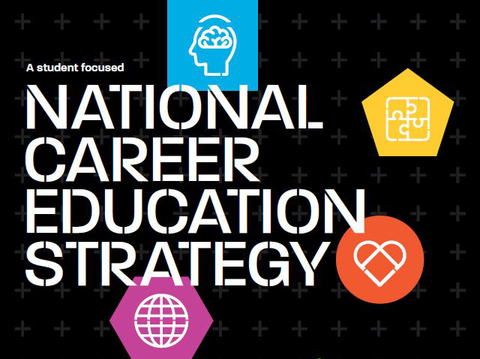
To prepare students for their future careers, Future Ready focuses on the importance of building the skills and general capabilities they will need in the workplace; strengthening school and employer collaboration; and developing students' career management and navigation skills.
The vision of Future Ready is that every student in every school has access to high‑quality career education to help them make a successful transition from school to further education, training, work or a combination of these.
The strategy focuses on improving career education in schools by:
This resource was developed in 2014 for principals and leadership teams of schools to help them get the best value and outcomes from their career development services. The resource describes the features of a contemporary school-based career development service and sets out progressive performance benchmarks that enable schools to review their service delivery.
Schools can use this resource repeatedly as a quality improvement tool, to stimulate thinking about the aims of their career development service, how to achieve these aims, and how to continue to meet the changing career development needs of students within a rapidly changing world of work.
Seven general capabilities that underpin the SACE to assist students to live, learn, work, and participate successfully in an ever-changing society. They are literacy; numeracy; ICT capability; critical and creative thinking; personal and social capability; intercultural understanding; and ethical understanding.
www.sace.sa.edu.au/web/achieve/your-journey/sace-capabilities
The Australian Curriculum: includes seven general capabilities that play a significant role in realising the goals set out in the Melbourne Declaration on Educational Goals for Young Australians (MCEETYA 2008) – that all young people in Australia should be supported to become successful learners, confident and creative individuals, and active and informed citizens.
They are:
CSfW describes the core non-technical skills that have been identified by Australian employers as important for successful participation in work. The framework describes a set of non-technical skills, knowledge and understandings that underpin successful participation in work.
Australian Core Skills Framework (ACSF)
ACSF is a tool which assists both specialist and non-specialist English language, literacy and numeracy practitioners describe an individual’s performance in the five core skills of learning, reading, writing, oral communication and numeracy.
Click to download 'Core Skills for Work Developmental Framework.'
The Blueprint is a framework for designing, implementing and evaluating career development programs for young people and adults. The Blueprint identifies the skills, attitudes and knowledge that individuals need to make sound choices and to effectively manage their careers. The Blueprint outlines 11 career management competencies at four levels of development.
Click to download the 'Australian Blueprint for Career Development.'
The publication of the Professional Standards represents a landmark in the history of Australian career development and a benchmark for career development practitioners. The Professional Standards:
CICA Launches Revised Professional Standards
The revised Professional Standards for Australian Career Development Practitioners has been released after an extensive consultation process with career development practitioners and CICA Member Associations.
Professional Standards for Australian Career Development Practitioners
This SACE Board information sheet provides information about recognition of Vet in the SACE, using VET for SACE Credits, planning VET pathways, entering results into Schools Online and monitoring potential SACE completion.
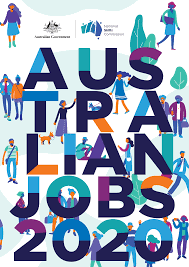
Australian Jobs is an easy to follow guide to the Australian labour market. The labour market can change quickly and there is currently a great deal of discussion about the future of work and the role of automation in determining demand for particular workers. It includes information about industries and occupations as well as states, territories and regions. The publication highlights trends in the Australian labour market and provides guidance about job search and the skills employers value.